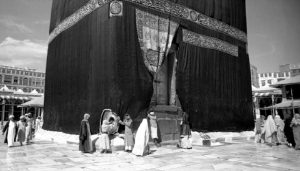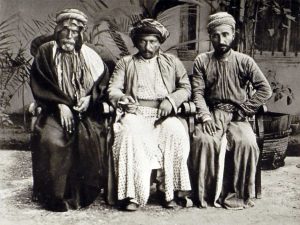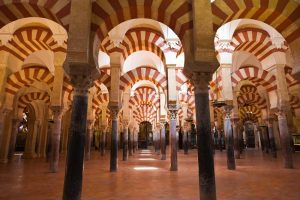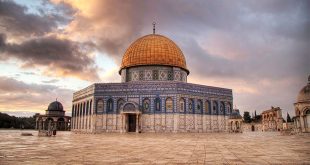I take off at every opportunity I can, be it with family, friends or alone, exploring, photographing and documenting interesting stuff in exotic destinations and taking the odd selfie to make friends jealous along the way (actually I rarely go to exotic destinations and am still struggling to work the ‘selfie’ feature on my phone – although my wife and daughters are usually on hand should the need arise!).
But as a Muslim Travel Writer living in challenging times, I’ve come to see travel in a completely different light; as an education and spiritually transformative experience. I also now understand why travel is encouraged by Islam – why else would we be able to collapse our prayers? But what I don’t understand is the lack of Muslims willing to travel. And before you bombard me with your messages and selfies from Dubai and Sharm, let’s make clear that a package holiday in a touristic location where all your expectations and creature comforts are met is not ‘travel’. That would be a holiday. I believe all Muslims should really travel, the proper independent stuff and here are eleven reasons why (beyond just being able to collapse our daily prayers – so technically that’s 12!):
1. The Hajj (or Umrah)

Travel is integral to many ‘spiritual’ aspects of Islam. Most notably the pilgrimage of Hajj, which is one of the five fundamental pillars of the faith. Then there is also the recommended smaller pilgrimage Umrah, both require Muslims to travel to Makkah, a journey that is viewed as much a transformative experience as the actual pilgrimage itself – something Muslim traveller Ibn Battuta and even Victorian explorer Richard Burton wrote about in their memoirs. The Hajj and Umrah also involve numerous rituals of motion and travel, such as the tawafs (initial and farewell) around the Ka’ba, the walk between Saf’a and Mar’wah, and the (Hajj only) journeys to Mina, Mount Arafat and Muzdalifah. Each of these demands the pilgrim meditates and reflects whilst moving.
2. The Prophet (peace be upon him)
Travel was openly encouraged by the Prophet Muhammad who, amongst other things, saw it as an essential way to seek knowledge. The Prophet experienced highly spiritual journeys himself such as the mystical ‘night journey’ or Meraj in which he ascends through the Seven Heavens, meets the prophets of before and receives instruction from God about the daily prayers. This journey, which most scholars believe happened before his emigration to Medina, was intended to strengthen his resolve and inner belief about his own prophethood. Finally, much of the Prophet’s formative years were spent travelling with his family’s business caravans all over the Middle East. These travels later had a profound impact on his ability to respect difference and empathise with other cultures.
3. A travelling tradition

Muslims come from a long line of famous travellers transformed irreversibly by their experiences. This includes the world’s most travelled man, Ibn Battuta who was born in Tangier, Morocco and travelled for 30 years after setting off for the Hajj in 1325 aged only 21 (one might say he was the first ‘gap’ year student!). Muslim scholars also deemed it important to travel and often covered great distances to acquire knowledge like the Sunni Muhaddith, Muhammad al-Bukhari. Finally there are many prophets who embarked on monumental spiritual journeys that transformed their character and strengthened their inner resolve. The most famous of these is Musa’s journey (Moses) alongside al-Khidr.
4. The spirituality of Travel
“Be in this world as if you were a stranger or a traveller along a path”,
This is a popular hadith about attachment to the material world and it is therefore no surprise that every spiritual tradition in Islam (and most other faiths) incorporates ‘wandering’ or ‘travel’ as part of the soul’s training. The wisdom behind this is to encourage detachment to the dunya (material world), i.e. make it ‘strange’ to the spirit, and thereby develop a greater appreciation of the hereafter. Following his spiritual crisis, the great medieval theologian Abu Hamed Muhammad ibn Muhammad al Ghazali – often called the ‘Proof of Islam’ – embarked on just such a journey.
5. Love of God

Through travel we get to know God better, it’s that simple. I have had some of my most spiritual moments staring out across a mountain range, a desert, lake, or even just humanity going about its daily existence. Travel makes the familiar unfamiliar to us and in doing so we come to better appreciate God’s creation. Throughout the Qur’an verses ask man to reflect on what has been created on earth and in the heavens – what better way to do that than through travel?
6. The death of ignorance and birth of humility

Nothing quite extinguishes ignorance like real life experiences. In an increasingly global world saturated by media, we find it easy to sit on one side of the world and judge people on the other. Using video, news articles and pictures it is easy to arrogantly believe we know a people or a place just by how media has represented them. Yet the very meaning of ‘media’ is that it is in the middle of reality and a mere representation of it. It is not the reality. Travelling to places we have judged or thought we knew is the best way to realise this, because it teaches us just how wrong we can be and addresses our ignorance. Travel makes us see that actually we know very little.
7. Know thyself

Talk to anyone who has ‘travelled’, especially solo travellers and you will be blown away by their self-confidence, open-mindedness and how well they seem to know themselves. Travel creates a better you, because it takes you out of your comfort zone and forces you to ask questions about who you are, why you are and what you are. As Muslims we believe there will come a time when we have to stand alone in front of our Creator and be cross examined. Travel allows you to cross examine yourself without the expectations of society, culture, religion and family. Those who have done this will tell you that nothing is more liberating than having only your own expectations. But be aware this can be quite scary the first time as you might suddenly realise that actually you don’t have that many expectations of your own.
8. Experience something ‘new’

The world is an amazing place full of amazing experiences waiting to be had. To not enjoy some of these whilst you’re here seems such a waste. In an age where travel is becoming increasingly cheap and methods of income ‘on the road’ to fund those travels, increasingly flexible, few excuses remain to not go and see the world at least once. Those who don’t will never see a sunrise over an ancient man-made masterpiece like Macchu Picchu; they won’t ever listen to the silence of a natural wonder like the Sahara desert; nor will they taste the sweetness of a star fruit freshly shaken from its tree by Bangladeshi village children.
9. Appreciate what and who you have
We always take our parents, brothers, sisters and homes for granted but spend a few months on the road and then taste your mother’s home cooking or listen to your father’s boring stories of old. Come back after a month Euro-railing and see if your sister is actually as annoying as you thought or your older brother as overbearing as he seemed. ‘Absence makes the heart fond’ they say, but what that really means is you finally see what God has blessed you with.
10. Regain your faith in humanity
One day I am going to write a book about the kindness of strangers on my travels for those who were also born into a ‘world’ that seemed difficult to trust. It was travel that regained my faith in humanity. From the gypsies in the hills of Tuscany who drove my family and I up a mountain to catch the last bus to Omar, the Turkish man who we fell in love with after he spontaneously took us on a road trip through rural Turkey, I have had beautiful encounters with strangers all over the world and come to realise that actually people are amazing. Growing up in 1980s inner city London, that was difficult to imagine. I now know that the vast majority of human beings in the world are caring, wonderful and respectful people – the very embodiment of what it means to be ‘human’.
11. Islamic history

There is so much Islamic history just waiting to be unearthed by travelling. Most of you know I am on my own journey doing just that and have already posted previously unheard of tales about Europe’s forgotten Muslim heritage, like the discovery of a Muslim Dracula and the Latin island where the lingua franca is Arabic or the story of the Christian boy who grew up to rule the Ottoman empire (and these are just the tip of a huge iceberg I am sifting through). By travelling to places significant in Islamic history, whether it be Medina or Cordoba in Spain, we come closer to our roots, our past and our heritage. It is only by knowing where we came from, can we truly know where we are travelling to.
Source: The Wandering Musulman
Tharik Hussain is a freelance Travel Writer, Photographer and Blogger. He has a Masters in Islamic tradition, culture and history and a Bachelors in Media and Cultural Studies. He has also been a News Journalist for Asian tabloid Eastern Eye as well as a Copyeditor for the Saudi Gazette.
 Sri lanka Muslims Web Portal Diversity and Inclusiveness
Sri lanka Muslims Web Portal Diversity and Inclusiveness



